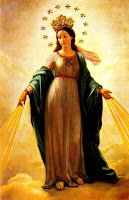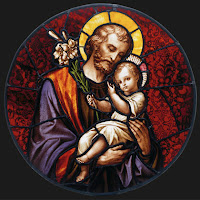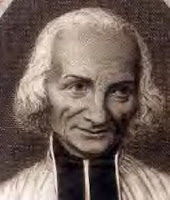
The feast of the Sacred Heart of Jesus this year coincides with what was formerly known as the Feast of the Precious Blood of Jesus. This coincidence emphasizes so much the humanity of the Lord for when you speak of heart and blood, you speak of components of the human body. While we are accustomed to look at the Sacred Heart as the symbol of the love of the Lord, let us not forget that “the proper and direct object of (the devotion) is the physical heart of Christ.” (C. Marmion, Christ in his Mysteries, 423.) And heart and blood belong to each other inasmuch as the heart is the organ that pumps blood to the various parts of the body. Biologically, the beating of one’s heart is actually the pumping of blood. Blood, which is the life force of the human body, flows through the veins by means of the beating of the heart. When the heart stops beating at death, the blood stops flowing through the veins. When the Lord died, his Sacred Heart stopped beating and when it was pierced open by the lance of a soldier, it brought out blood and water. The heart was drained of its blood – this is the mark of the consummation of Christ’s sacrifice and the fulfillment of what St. John said, “He loved his own even unto the end.”
“The Lord has set his heart on you and chose you,” Moses affirmed in the first reading. “God loved us,” John affirmed in the second reading. But with what did God love us? “He has loved us with a human heart. For this reason, the Sacred Heart of Jesus, pierced by our sins and for our salvation is quite rightly considered the chief sign and the symbol…of that love with which the divine Redeemer continually loves the eternal Father and all human beings without exception.” (CCC, 478.) He, who in his divinity is so much unlike us in every way, loved us with a human heart, that is, loved us in his humanity which is so much like us in every way except in sin. That is why he tells us: “Come to me, all you who labor and are burdened.” He invites us to draw to him – not as someone who does not understand human toil and burden. He understands our toil and burden because he has his own: “Take my yoke upon you and learn from me, for I am meek and humble of heart; and you will find rest for your souls. For my yoke is easy, and my burden light.”
Indeed, the human heart of Christ, as well as his blood, are worthy of our adoration “because it is part of Christ’s human nature, and because the Word united himself to a perfect nature. The same adoration we give to the Divine Person of the Word extends to all that to which he is personally united, all that subsists in and through the Person of the Word. This is true of Jesus’ human nature as a whole; it is true of each of the parts of which it is composed. The heart of Jesus is the heart of one who is God.” (Marmion) The blood of Jesus is the blood of one who is God. Because this is the heart of one who is God, it is the symbol of the love which the Incarnate Word bears for us. Because this is the Blood of one who is God, it is the price of our redemption.
Before this tremendous mystery of the Divinity and the humanity of Christ, let us humble ourselves like little children – for only by doing so will we be the objects of his love: “The Lord set his heart on you and chose you, for you are really the smallest of all nations.” He reveals the secrets of his heart to children: “although you have hidden these things from the wise and the learned, you have revealed them to little children.” We toil and bear our burdens like adults. Let us surrender these “adult things” to him who, though is Lord and God, is also meek and humble of heart. From him, let us learn. In him, let us rest “for my yoke is easy, and my burden light.”
“The Lord has set his heart on you and chose you,” Moses affirmed in the first reading. “God loved us,” John affirmed in the second reading. But with what did God love us? “He has loved us with a human heart. For this reason, the Sacred Heart of Jesus, pierced by our sins and for our salvation is quite rightly considered the chief sign and the symbol…of that love with which the divine Redeemer continually loves the eternal Father and all human beings without exception.” (CCC, 478.) He, who in his divinity is so much unlike us in every way, loved us with a human heart, that is, loved us in his humanity which is so much like us in every way except in sin. That is why he tells us: “Come to me, all you who labor and are burdened.” He invites us to draw to him – not as someone who does not understand human toil and burden. He understands our toil and burden because he has his own: “Take my yoke upon you and learn from me, for I am meek and humble of heart; and you will find rest for your souls. For my yoke is easy, and my burden light.”
Indeed, the human heart of Christ, as well as his blood, are worthy of our adoration “because it is part of Christ’s human nature, and because the Word united himself to a perfect nature. The same adoration we give to the Divine Person of the Word extends to all that to which he is personally united, all that subsists in and through the Person of the Word. This is true of Jesus’ human nature as a whole; it is true of each of the parts of which it is composed. The heart of Jesus is the heart of one who is God.” (Marmion) The blood of Jesus is the blood of one who is God. Because this is the heart of one who is God, it is the symbol of the love which the Incarnate Word bears for us. Because this is the Blood of one who is God, it is the price of our redemption.
Before this tremendous mystery of the Divinity and the humanity of Christ, let us humble ourselves like little children – for only by doing so will we be the objects of his love: “The Lord set his heart on you and chose you, for you are really the smallest of all nations.” He reveals the secrets of his heart to children: “although you have hidden these things from the wise and the learned, you have revealed them to little children.” We toil and bear our burdens like adults. Let us surrender these “adult things” to him who, though is Lord and God, is also meek and humble of heart. From him, let us learn. In him, let us rest “for my yoke is easy, and my burden light.”









No comments:
Post a Comment